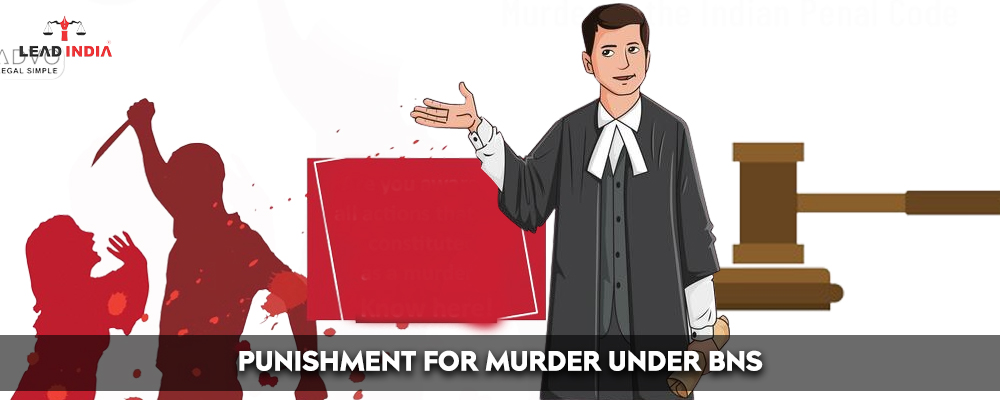Cl. 102 and Cl. 107(2) of the BNS prescribe punishment for the offenses of murder and attempted murder (where the hurt is caused), respectively, committed by prisoners serving life sentences. Both provisions specify the death penalty or a life sentence as possible punishments.
Need A Legal Advice
The internet is not a lawyer and neither are you. Talk to a real lawyer about your legal issue

Murder Under Bns
According to Clause 101(2) of the BNS Bill, mob lynching occurs when a group of five or more people act in concert murder based on race, caste, community, sex, place of birth, language, personal belief, or any other ground. Each member of such group shall be punished with death, life imprisonment, or imprisonment for a term of not less than seven years, as well as a fine.
Clause 101(1) specifies the punishment for murder, which is death or life imprisonment, as well as a fine. Many infamous examples of mob lynching have occurred around the country, with victims slain as a result of rumors and allegations of purported crimes such as stealing, smuggling cattle, child lifting, murdering cows, kidnapping young girls, or eloping with women of a different religion
The Bill establishes a different sentence for murder committed by five or more people for specified reasons. The offense is punishable by at least seven years in jail, up to life in prison or death, as well as a monetary fine. The grounds include race, caste or community, gender, place of birth, language, personal belief, or any other factor.
This act has the same intent and consequences as murder, which is already covered by the IPC. The minimum penalty for murder by a group under certain defined circumstances is less than the standard murder penalty of death or life imprisonment. The reason for the disparity in punishments is unclear. The Standing Committee on Home Affairs (2023) recommended that the seven-year jail clause be removed.
Cl. 102 proposes to replace Section 303 of the IPC, which punishes murder with life imprisonment and was found unconstitutional by the Supreme Court in Mithu v. State of Punjab. S. 303 mandated the death sentence for murder committed by a life-convict. The Court ruled that mandatory implementation of a death sentence limits judicial consideration of factors related to the crime and the criminal in particular situations.
Cl. 107 replaces Section 307 (2) of the IPC, which now mandates the death penalty for a life-convict’s attempt to murder. It is crucial to note that notwithstanding the verdict in Mithu on Section 303 of the IPC, this section is still in existence.
Ingredients of Murder
The Indian Penal Code (IPC), 1860, is the primary criminal law in India. Offenses covered include those affecting: (i) the human body, such as assault and murder; (ii) property, such as extortion and theft; (iii) public order, such as illegal assembly and Rioting; (iv) violations of public health, safety, decency, morals, and religion; (iv) defamation; and (v) state offences. The IPC has been changed over time to add new offenses, revise old ones, and change the punishment quantum. Certain crimes, including consensual intercourse between same-sex adults, adultery, and attempted suicide, have also been decriminalized by courts. Several states have additionally altered the IPC to establish varying penalties for sexual offenses, selling minors for prostitution, food and drug adulteration, and religious text sacrilege. Several Law Commission reports have recommended revisions to the IPC on topics such as crimes against women, food adulteration, and the death penalty.
The Bharatiya Nyaya Sanhita (BNS) will take the role of the IPC. It generally keeps the provisions of the IPC, adds certain new offenses, eliminates offenses that have been overturned by courts, and enhances sentences for some offenses. The Standing Committee on Home Affairs considered it.
Lead India provides free legal advice, internet information, and other legal services. We offer a forum where you may talk with a lawyer and ask legal questions. Lead India’s Lawyers may assist you with any legal matters. Lead India’s solicitors can help you with any legal concerns. Lead India also offers free online legal help in India. In addition to providing online legal aid, Lead India allows users to ask specialist inquiries for free.





 Talk to a Lawyer
Talk to a Lawyer